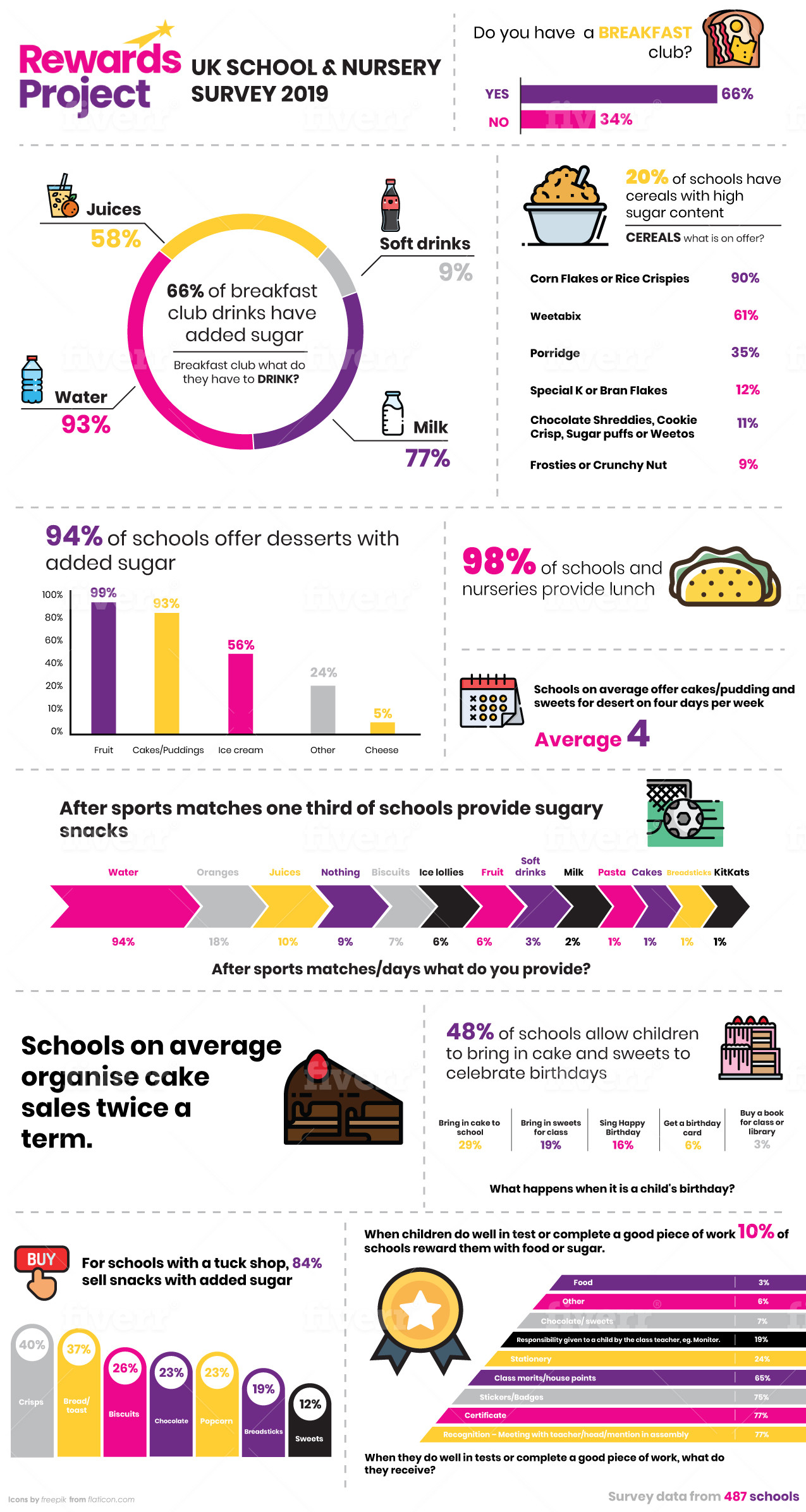Too Sweet: Schools Pushing Too Much Sugar at Children According to a Charity Survey
LONDON (September 17, 2019) - A new survey conducted by the charity, Rewards Project, has found that schools are offering too much sugar to children.
Four hundred and eighty-seven (487) schools and nurseries from across the UK participated in the survey which found that 66% of breakfast clubs drinks have added sugar, 94% of schools offer desserts with added sugar and 84% of schools with a tuck shop sold snacks with added sugar.
According to the NHS most children and adults in the UK eat too much free sugars which are linked to weight gain and tooth decay. Free sugars are defined as any sugars added to food or drinks like biscuits, chocolate, fizzy drinks and flavoured yoghurts. They also include naturally occurring sugars like honey, nectar and unsweetened fruit and vegetable juices. Sadly, these are same sugars served to children at school during breakfast clubs and as desserts at lunch time.
Practicing Dentist, James Goolnik, is the Founder of Rewards Project. Explaining the motivation for conducting the survey, he said: “As a parent of three children, I was fed up of fending off the sugar pushed to them at school. Sugar laden cereals, desserts every day and chocolate bars when they do well in tests. We carried out the survey of schools to see how bad the problem was. We found our children come into contact with sugar every day at school, often exceeding their maximum daily allowance before lunch.”
Probably the most alarming statistics gleaned from the survey are the ones showing that one-third of schools offer sugary snacks after a sports match, 48% of schools allow children to bring in cakes and sweets to celebrate birthdays, schools on average organize cake sales twice per term and 10% of schools reward children with food or sugar when they do well or complete a good piece of work.
The school environment has been shown to influence children’s food choices; however, using food as a reward when children are not hungry can trigger a habit that could last a lifetime according to an article published in Preventative Medicine. Although rewards are a good way to encourage positive behaviour, there are much sweeter rewards than sugar. Rewards Project recommends other alternatives such as certificates, post it notes, fun quizzes and puzzles, field trips cinema tickets, books, trophies and stationery.
For further information about Rewards Project or to take the sugar quiz, visit: https://rewardsproject.org. For full details and infographic (click https://rewardsproject.org/wp-content/uploads/2019/09/Infographic-1.jpg)
----ENDS
Media contact: James Goolnik
Email: james@rewardsproject.org
Rewards Project is a charity spearheading change in how children are rewarded for good behaviour and performance, both at school and at home. Today’s rewards culture is often based on sugar laden foods and is endemic both in the classroom - and at home. And now real help is on hand to guide you through the transition.
At Rewards Project our dentists, doctors, nutritionists and psychologists are working collaboratively with schools, parents and organisations to transform how we use sugar-based foods and drinks to reward children. Scientific research shows that children today are regularly bombarded with sweet derived products – and this is proven to negatively impact on children’s health and behaviour, both in school and at home.
Press release distributed by Pressat on behalf of Rewards Project , on Wednesday 18 September, 2019. For more information subscribe and follow https://pressat.co.uk/
Sugar Schools Health Healthy Schools Low Sugar Sugar Nutrition School Nutrition School Survey Rewards Project Rewarding Children Nurseries Charities & non-profits
You just read:
Too Sweet: Schools Pushing Too Much Sugar at Children According to a Charity Survey
News from this source:



